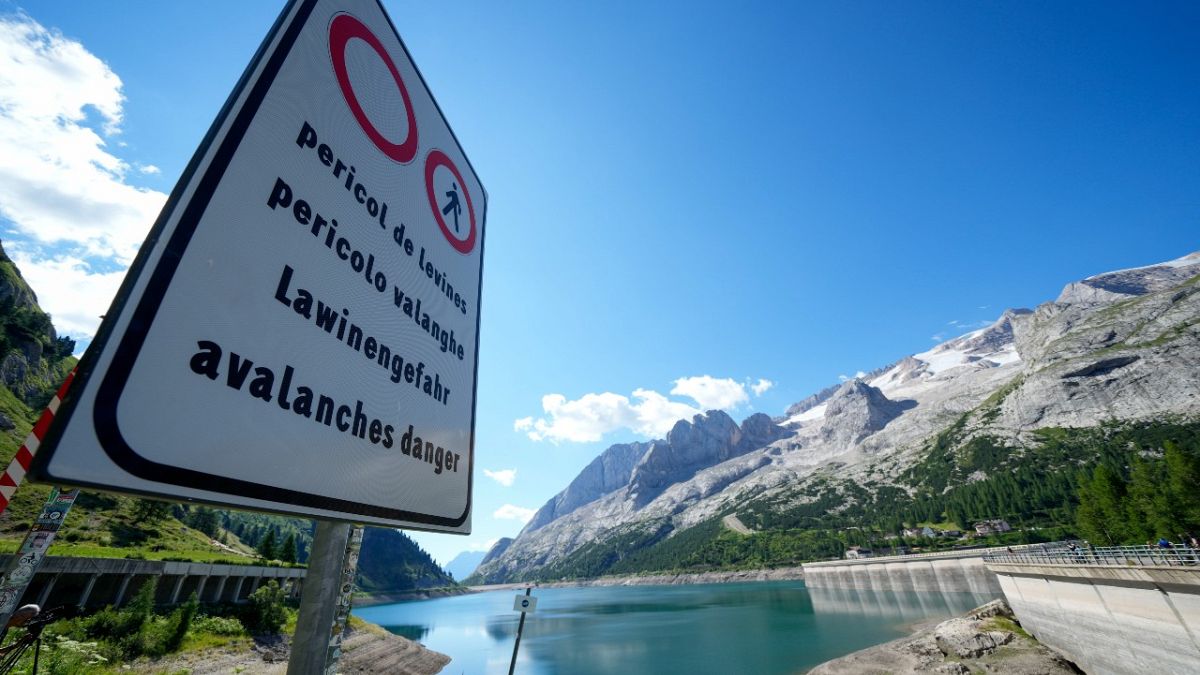Experts fear sections of a Swiss mountain may collapse, threatening a village below, after a deadly avalanche at the Marmolada glacier in the Italian Alps in early July.
Swiss geologists monitor a mountain peak at risk of collapsing and damaging a village below.
There are fears of new rock avalanches after a section of the Marmolada glacier, in the Italian Alps, collapsed on July 2 killing at least ten people.
The Marmolada is the highest peak in the Italian Dolomites and experts have identified another area at risk of collapsing above the Swiss village of Kandersteg.
With its high-altitude lake, hikers and wooden chalets, Kandersteg offers a picture-postcard landscape and is a renowned resort in the Swiss Alps.
Only accessible by helicopter, the mountain is being closely monitored by a team of geologists.
"The black areas are where it slides. So here we fly over the bottom of the slide," said Jörg Häberle, a geologist at the Forestry and Natural Hazards Office.
"Here you can see the mass of loose rocks that are moving. And sometimes there are whole blocks, like the size of a car garage, that are falling."
Geologists have now placed dozens of sensors to monitor the movement of the mountain and scientists have been able to establish that the mountain is moving several metres every year, a record in the Alps.
The rate of movement is attributed to global warming.
Some work has been carried out to protect the area from mud and stones during heavy rain but despite the risk, local people are taking a relaxed approach to it.
"I think if you go by car every day you have more risk than to be killed by a stone of the mountain," one local resident explained.
It is impossible to know when the mountain may collapse, but advanced surveillance systems can ensure an alert will be triggered 48 hours in advance, enough to evacuate the area.
Watch the report in the video player above.
